At almost a decade old, the Renault Zoe has been around a while.
This year’s Fiesta-sized hatchback is the culmination of 10 years of interior upgrades, design tweaks and improved range, up to 234 miles (real world around 170 miles), and with two power outputs: 50 kw rapid charge and 22kw.
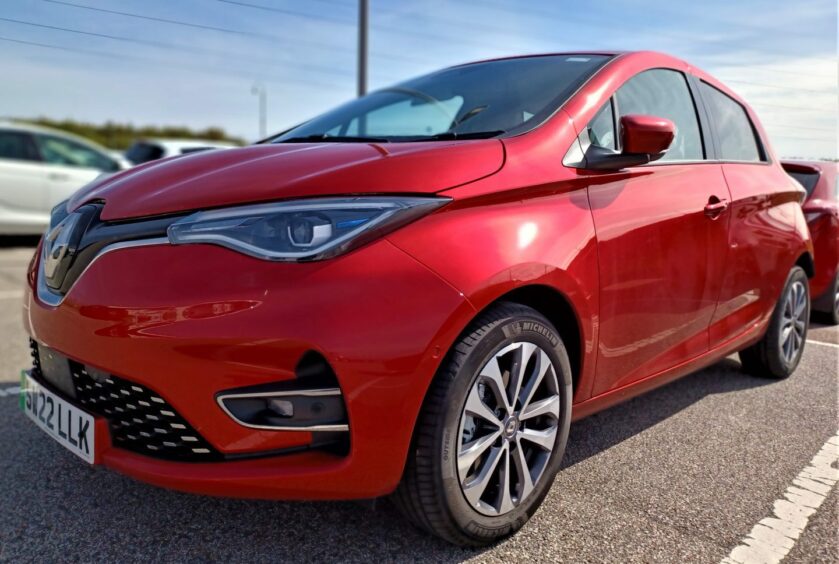
The E-Tech R135 (formerly GT Line Plus) costs from £29,995, depending on spec. However, if new to EVs and buying a used version, you can find a six-year-old model for under £10,000 at 41kw but with a lower range, around 100 miles or so in some cases.
This is perfectly adequate for city driving and for most people’s needs. And the good thing is that, range and age aside, the Zoe retains the hatchback charm of its earliest version.
Outside
I picked my Zoe up from John Clark Specialist Cars Renault, Aberdeen, on a clear, dry and blustery day, freshly valeted and attractive to look at, its metallic burnt orange paintwork dazzling in the sunshine.
The Zoe sits with the Fiat 500 and Peugeot e-208, with similar proportions, and is unassuming in size. It’s not built like a Chiron so you know what you’re going to get in terms of aerodynamics and performance, but it looks like it could handle a city very well – and it does.
At 338 litres the boot is spacious enough for shopping, luggage, sport bags and away-day essentials. Retractable mirrors when you lock the car and Alfa-style flush rear door handles give it a nice, sleek finish.
Inside
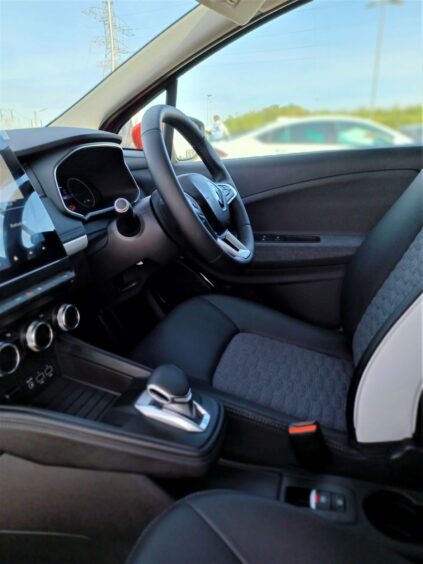
If you’re used to manual internal combustion engine (ICE) cars, then an EV can present quite a new driving experience and, for some, can be daunting. For one, the start-up is silent, as is the reverse. If it wasn’t for the surround sensors you might not even know you were moving.
The handy rear camera makes reversing a breeze, although I’d still rather crane my neck and use my eyes. However, not everyone has the flexibility to move around the cabin with ease, and that’s where the Zoe becomes very driver friendly.
The parking brake is a button, no need to yank on a handbrake (perfect for someone with mobility issues or minor arthritis, for example) and the seat adjustment is smooth.
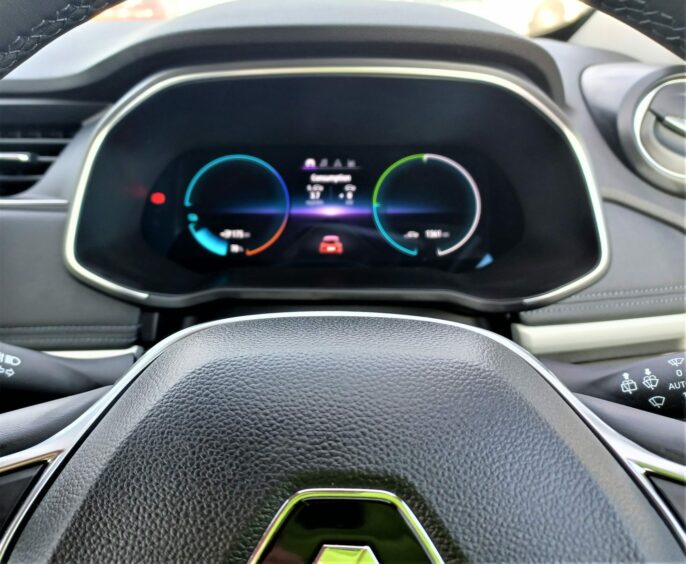
Motoring journalist Jack McKeown often considers how well a vehicle can accommodate his 6ft 5 inch frame. I have the opposite problem. At 5ft, finding a car I can drive comfortably can be a challenge, but one look around the interior showed that the deep footwell of the passenger and driver’s seat could handle most sizes well. This, in addition to decent headroom. The rear would be a bit of a squeeze except for children, though.
The cabin materials aren’t premium – this is reflected in the affordable price – but the Zoe isn’t meant to be a long distance cruiser and so it’s not the focus of the drive. Instead, it has other attributes.
The wide screen has a easy-to-use satnav, and there are three dials to control climate, temperature and air direction. In fact, the entire cabin has a simple and user-friendly layout.
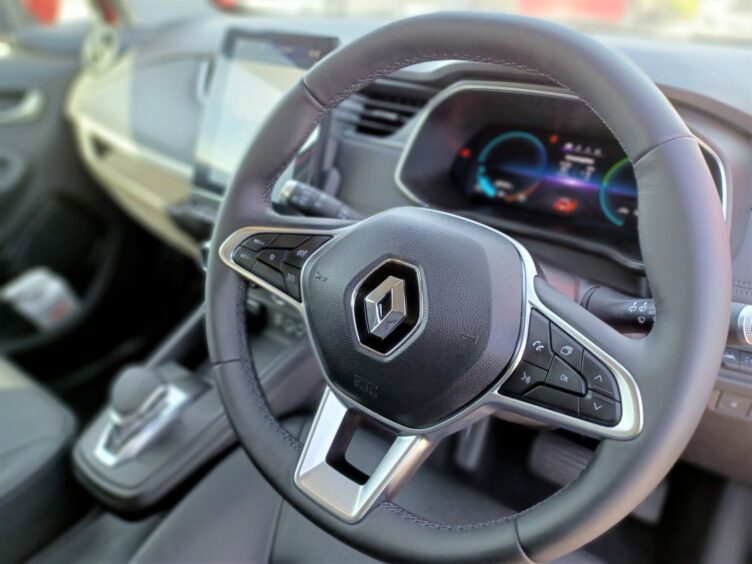
Window buttons, lights and indicators are easy to see and reach, and there are minimal distractions; some EVs come with enormous dashboard screens which are stunning to look at – but it’s a whole lot of information to take in.
The attractive driver’s console has basic information on acceleration and power usage, too, meaning it’s extremely easy to keep an eye on just how much damage you’re doing with each acceleration boost.
On the road
I took it out for a spin along the east coast, taking in city and back roads, and a stretch of dual carriageway to open it up and get a feel for acceleration and handling.
In the city it has light steering and responsive brakes. The slightly firm suspension meant every pothole was felt on the open road, but in the city it soaked them up pretty comfortably at lower speeds.
Regenerative braking changes the way you drive, as you take a little more time to anticipate and slow, rather than depend on frequent or heavy use of the brakes and gear changes.
Town driving, with all its distractions, is made simpler and smoother, simply because the car does the work for you. Its automatic gearbox and neat turning circle made it nimble and light in tight spaces – and it is whisper quiet under 40mph.
However, wind resistance is felt more on the open road and some of its interior serenity is lost. The steering also loses precision at higher speeds but it took wide, sweeping corners comfortably with little body roll.
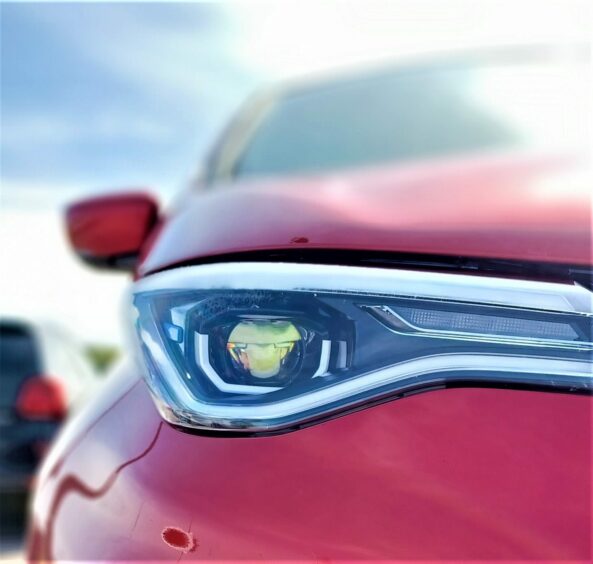
Gear changes, especially in some older cars, do make you consider your overtakes more carefully, but the instant power delivery to the front wheels meant the overtakes felt safer all round.
The acceleration is decent enough (0-62mph in 9.5 seconds in the R135 version). As Jack McK would say, “It’s not going to set the heather alight” but it is adequate for the job. It’s not built for racing, after all.
And just as well. At speeds of over 60, its boxy rear end picked up some robust sidewinds in exposed spots. Not surprising given the north sea coast, but still a reason to slow and drive with more caution.
The Zoe has a top speed of 87mph and the range worked well given the varied driving I did over the space of several hours and covering around 120 miles. With a full charge when I set off, I came back with 53% battery and 106 miles left.
Conclusion
If it’s your first time in an EV then the Zoe is a good option simply because it keeps things simple, allowing you to transition from ICE to EV without becoming overwhelmed by interior wizardry and tech that would have Silicon Valley kids scratching their heads.
The Renault Zoe’s is perfectly competent on the open road – even when taking a north sea buffeting – but its natural habit is undoubtedly the city. Here it excels in its comfort zone – quiet, smooth, nimbly gliding through narrow streets and traffic with ease.

If you’re a thrill-seeking petrol-head then the Zoe isn’t for you. In fact, it’s probably not even on your radar. It won’t turn heads and you won’t step out of the car feeling as though you’ve just had a mind-blowing ride.
But that’s not really the point. It’s a civilised drive. It’s peaceful. It takes the stress out of driving in traffic, and it keeps your attention on the road. From the parking brake to the steering, the Zoe does all the hard work for you, and if you play within its pleasant parameters, it will serve you well indeed.
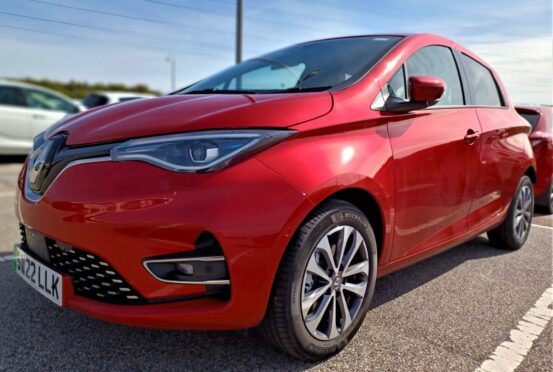
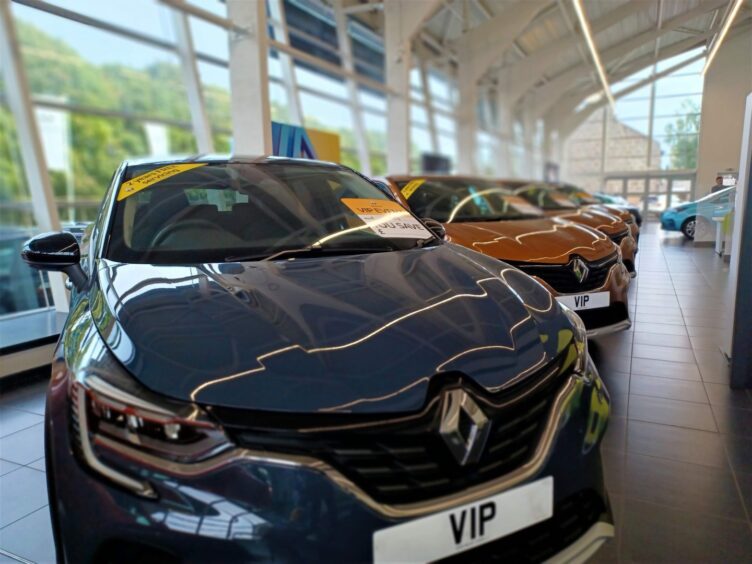
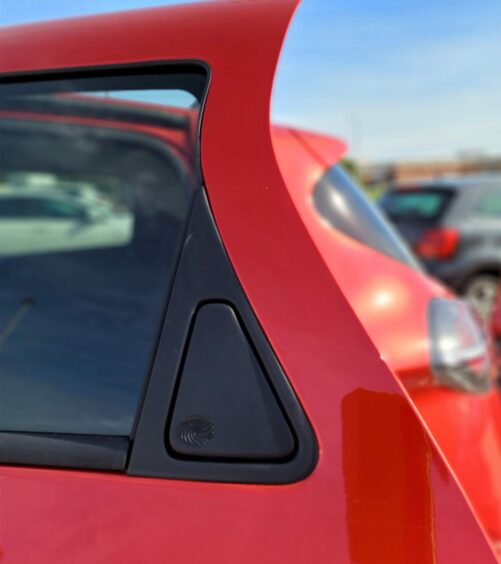
Conversation